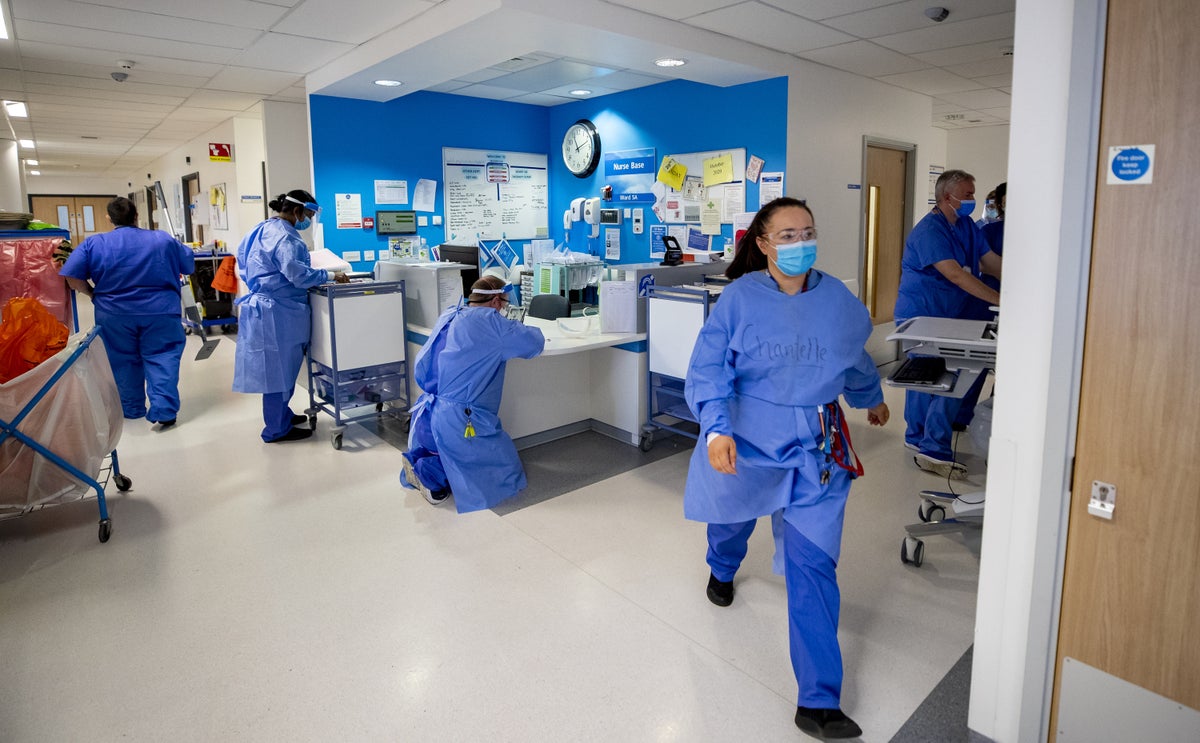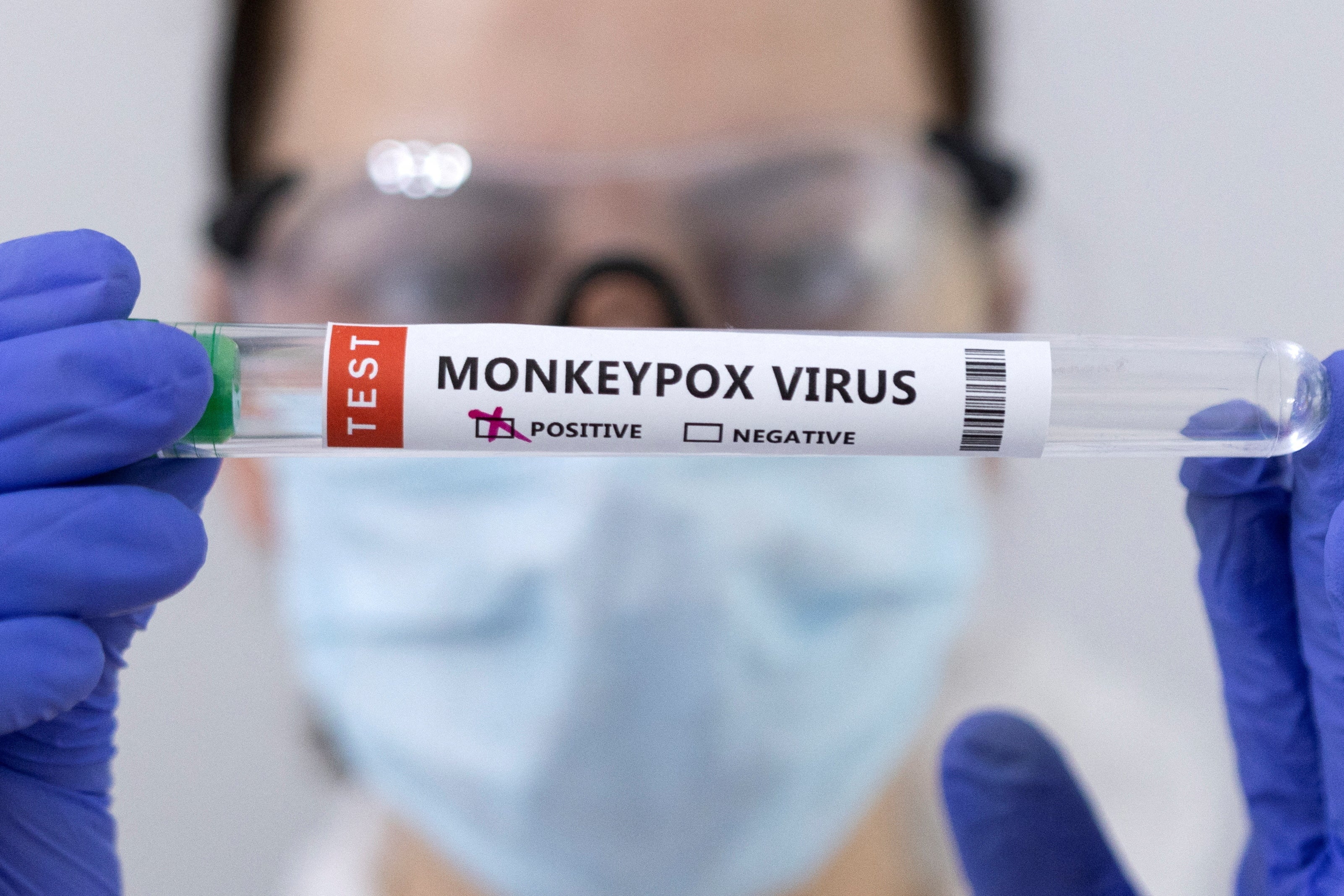
England’s monkeypox outbreak is beginning to spread beyond London with a spike in cases outside the main epicentre, health officials have warned.
The Terrence Higgins Trust, which helped coordinate the national response to the viral infection, said “time is slipping away quite quickly” to limit the outbreak to the capital, with concerning rises reported in Manchester and Brighton.
A total of 2,759 infections have been detected in the UK, the majority of which are centred in London. However, according to the latest data, the number of cases in the southeast nearly tripled between 6 July and 1 August, rising from 91 to 233 – one of the sharpest regional jumps over this period. In the northwest, cases more than doubled from 71 to 144.
“We’re quite concerned about what this increase means,” said Ceri Smith, head of policy at the Terrence Higgins Trust.
“If the monkeypox outbreak continues at the kind of pace that we’re seeing and especially if it starts to affect other cities – we are beginning to see potentially an increase in places like Brighton and Manchester – we’re quite worried we’ll then start to see a knock-on impact on sexual health services that are more geographically dispersed.”
It’s believed the infection is being transmitted out of London via sexual networks. Ms Smith said there was evidence of men, who account for the vast majority of monkeypox cases, travelling to the capital to attend sex events, such as fetish nights, and contracting the virus before returning home.
“The events are based in London, but the people that are attending it and potentially exposed to monkeypox may live elsewhere,” said Ms Smith. “That’s something that we’ve been seeing throughout the outbreak. So there have been little pockets of diagnoses around the country. It’s really hard to be proved, but a lot of it does seem to be linked back to London.”
The British Association for Sexual Health and HIV also said it was “aware that there has been an increase in case numbers in other parts of the country”, but added that the “significant majority” of monkeypox cases are still being recorded in London.
It comes as one academic and advisor to the World Health Organisation suggested that it is only a matter of time before the UK records its first monkeypox death after a number of fatalities were recorded earlier this week among young men in Spain and India.

“At the moment we’ve seen far fewer deaths for the number of infections than I think most people would have expected a few weeks back, but it’s still early days,” said Paul Hunter, a professor in medicine at the University of East Anglia.
“People don’t die the minute they’ve got the infection, but weeks afterwards. As the number of cases increases, I expect to see more deaths and probably we will see a higher death rate than we’ve got at the moment.”
Of the 2,759 cases reported in the UK, some 2,638 have been recorded in England, 65 in Scotland, 32 in Wales and 24 in Northern Ireland.
The UK Health Security Agency has said the outbreak has been largely confined to gay, bisexual, and men who have sex with men, but warns that anyone can contract monkeypox.
Last month, health officials said that the country’s vaccine rollout would be accelerated and expanded in London after the government ordered a further 100,000 doses of the Imvanex jab, which is typically used against smallpox, a viral relative of monkeypox.
Across the capital, more than 18 clinics are offering vaccinations, including the Dean Street sexual health clinic in Soho, Chelsea and Westminster Hospital, Guy’s Hospital in Southwark, Mortimer Market Centre in Camden and Barking Hospital Outpatient Centre East.
Prof Hunter said the growth rate of the UK’s outbreak was unclear but warned that regardless of whether cases are still going up or falling “we are still a long way from being over this and will not be until we get more vaccine out”.
Sarah Pitt, a microbiologist at the University of Brighton, said it was “really important to raise the issue of potential spread of the infection outside of the London area. Anyone who might be at risk should be aware of this”.
More than 16,000 cases of monkeypox have now been reported in 75 countries across the globe, according to the WHO. There have been five deaths as a result of the outbreak, the agency said.




.jpg?w=600)


